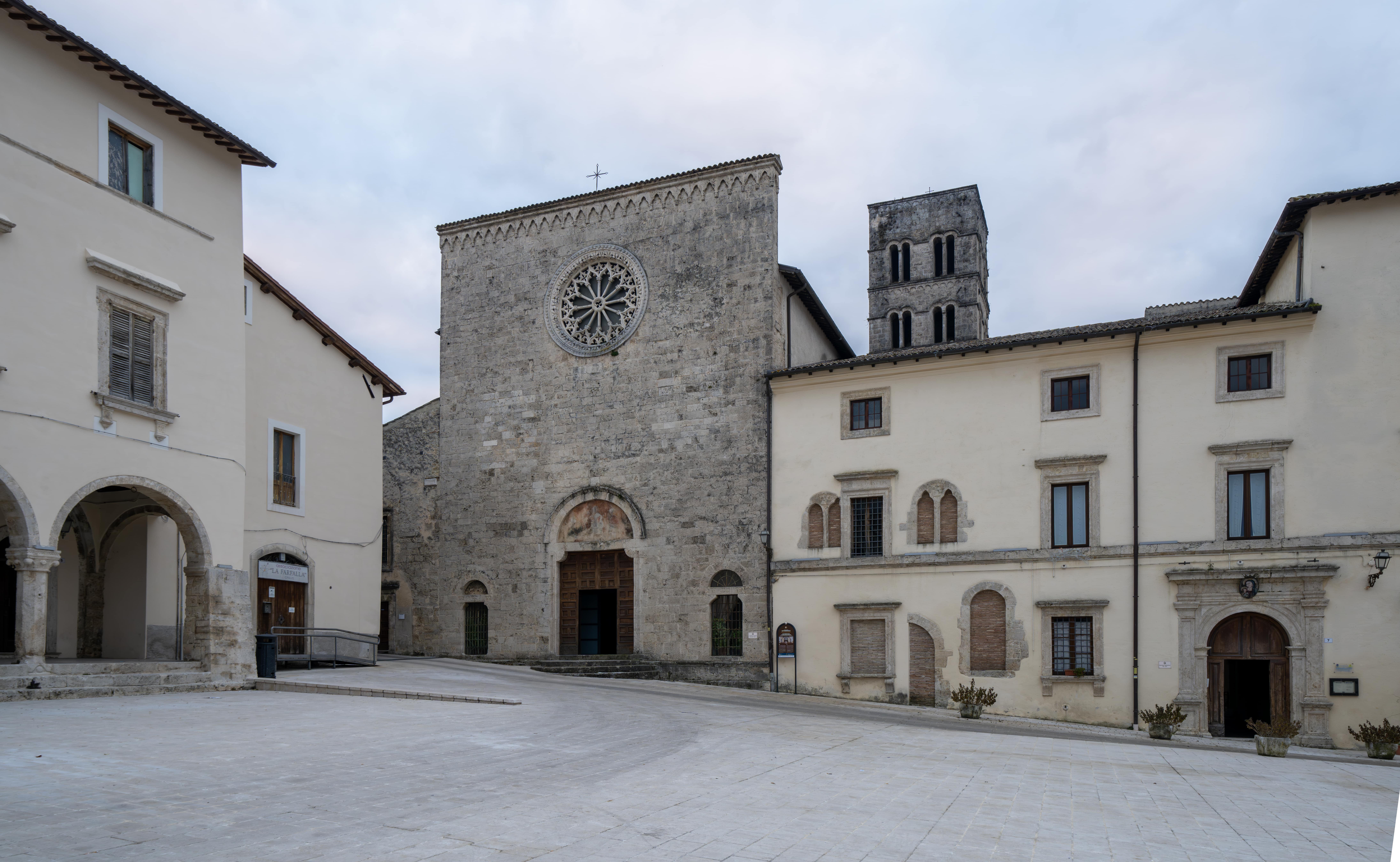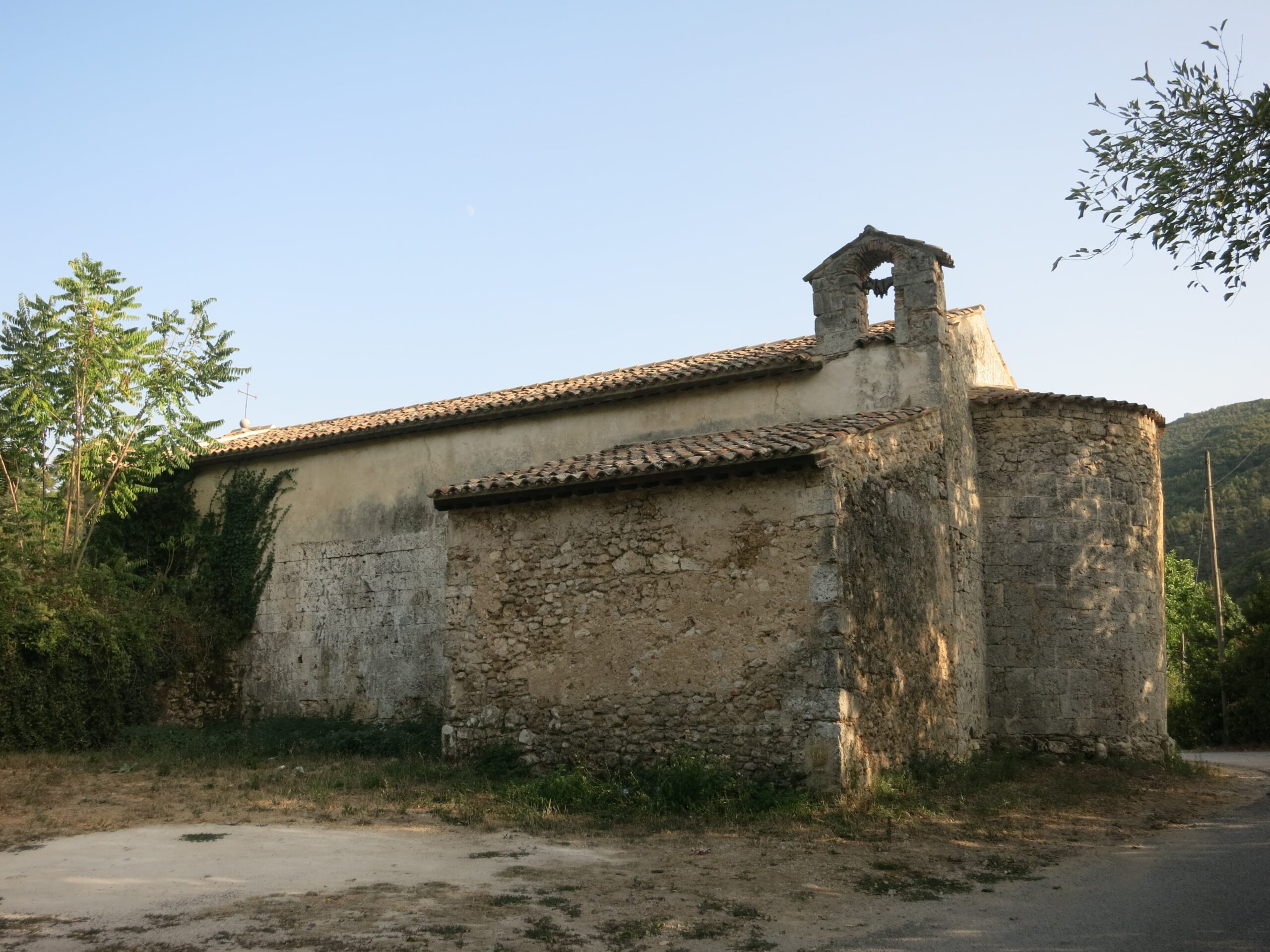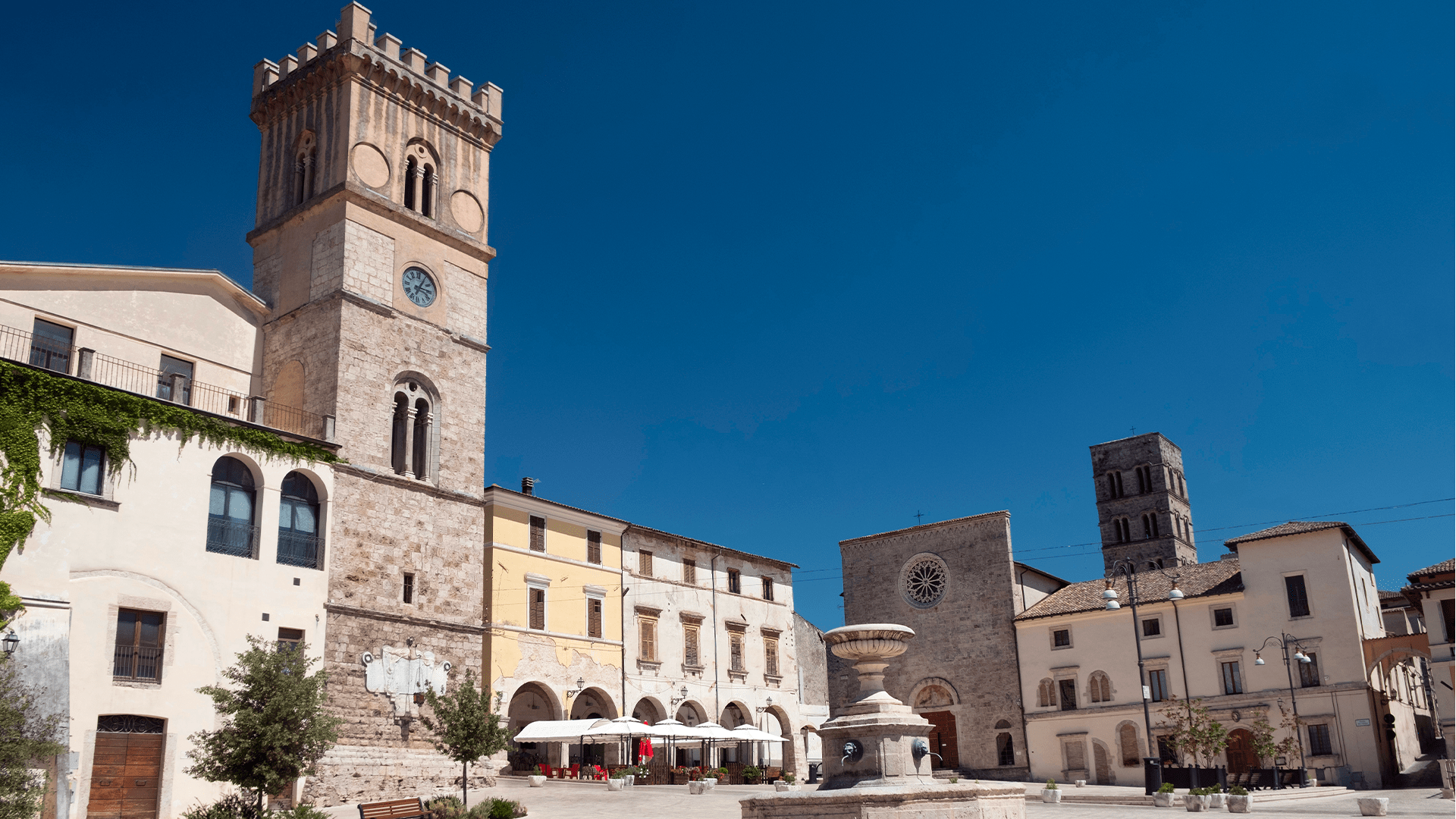




Cittaducale
The station of Cittaducale stands about a kilometer from the historic center, near the medieval church of Santa Maria de Sexto.
The Cittaducale station is located about one kilometre from the old town centre, near the medieval church of Santa Maria de Sexto. The municipal territory also includes the Sorgenti del Peschiera stop, serving the hamlet of Micciani and the ACEA waterworks, which collect spring water to supply Rome. The Cotilia stop, which served the hamlet of Caporio and its hydroelectric power plant, was closed in 2014.
Cittaducale is a late-medieval town perched on a hill, at the foot of which the Velino river flows as it emerges from the San Vittorino plain and where the Via Salaria and the railway expand.
The hill is an offshoot of Mount Terminillo; to the south-east, on the right bank of the river, rises the Mount Nuria mountain chain.
Founded by King Charles II of Anjou and dedicated to his son Robert, Duke of Calabria, the town was formed by uniting the various surrounding castles in order to control the border of the Kingdom of Naples.
For centuries, Cittaducale was at odds with Rieti over border issues.
From the early 16th century to 1818, it was a diocese.
Charles V gave the town as a fief to his daughter Margaret, who married Ottavio Farnese. After the rule of the Farnese family, it returned to the direct dependency of the Bourbons of Naples and remained part of Abruzzo after the unification of Italy until 1927. The town retains the regular urban layout of a planned settlement.
The town retains the regular urban layout of a planned settlement.
Among the most important buildings are the Palazzo della Comunità, with the Municipal Tower, and the former Cathedral of Santa Maria del Popolo, of medieval foundation.
Near the hamlet of Cesoni are the archaeological remains of the so-called “Baths of Vespasian”, an imposing 1st century structure with a large pool, possibly linked to the cult of the goddess Vacuna. A section of the Roman route of the Via Salaria can be seen in the area.
Cittaducale is home to the School of Forestry, the main facility nationwide for training park rangers (called “Carabinieri units for forestry” since 2017). The complex also houses a historical museum with relics, weapons and uniforms of the State Forestry Corps.
The town is a university branch of the Department of Agricultural and Forestry Sciences of the University of Tuscia.

Project by Riattivati Youth Cultural Association
With contributions from: FAI – Fondo per l’Ambiente Italiano ETS, INTESA SANPAOLO, Rotary Club Rieti
Thanks To the promotion comittee: Amici di Rieti, Associazione Culturale Giovanile Riattivati, Rotary Club Rieti e Associazione Collezionisti “Sabatino Fabi”
